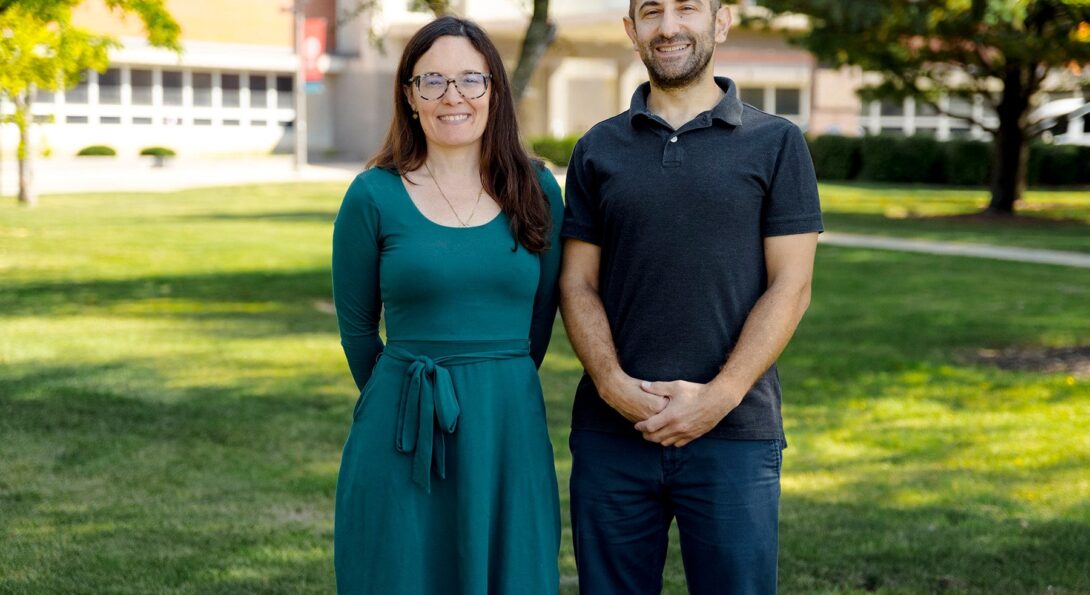DHD professors awarded grant to help city officials and ADA coordinators better engage people with disabilities in accessibility planning

Body
A three-year, $750,000 grant funded by the National Institute on Disability, Independent Living and Rehabilitation Research will allow DHD associate professors Delphine Labbé and Yochai Eisenberg to develop resources for public agencies to better involve people with disabilities in city planning.
Their aim is to advance implementation of requirements set forth by the Americans with Disabilities Act, developing trainings and materials for urban planners and ADA coordinators that foreground the insights of people with disabilities.
The project is the culmination of eight years of work for Eisenberg and Labbé. The pair’s earlier research evaluated ADA transition plans, which cities have used to improve the accessibility of pedestrian infrastructure.
“These plans are intended to ensure safe walking and wheeling for everyone,” said Eisenberg.
However, the plans are not always accessible to people with disabilities.
“We identified that there are no trainings that support people with disabilities to be effective and have meaningful experiences on advisory boards for cities,” he said.
Labbé said many cities have not followed an important element of Title II of the ADA: to include people with disabilities in the development of their ADA transition plans. This is important for all aspects of ADA compliance, especially regarding the Public Right-of-Way Accessibility guidelines adopted in 2023.
People with disabilities encounter numerous barriers in the public rights-of-way: missing sidewalks, broken curb ramps, faded crosswalks and inaudible pedestrian crossing signals, to name a few. Including and accommodating people with disabilities — in city infrastructure and compliance efforts — increases safety and health overall.
“Safer pedestrian infrastructure reduces accidents,” said Labbé. “It makes people more active and gives them the confidence to walk or wheel around in their community. There’s even social cohesion. There are studies that show it helps create the feel of community,” she said.
Eisenberg and Labbé are working with Disability Lead, a network of leaders with disabilities, to develop tools for use in public agencies and with the Chicago Metropolitan Agency for Planning’s Accessibility Planning Team to design tools for ADA coordinators.
“They will be sharing their experiences and bringing their perspectives in a more effective way to improve accessibility in their communities,” Labbé said. “The other side is helping cities be better at engaging people with disabilities in planning.”
In time, the pair hopes the materials they develop will be used across the country.
“Urban planners and ADA coordinators will gain confidence, gain skills and have a greater readiness to address the problem of inaccessible cities,” Eisenberg said. “When you bring up the Americans with Disabilities Act, sometimes people start to shy away and feel nervous, as they fear lawsuits. We’re really hoping to address that head-on through these trainings, materials and resources.”
This article has been edited for length and clarity by Emily Parenti-Lopez.
Short video summary
Listen to story summary.